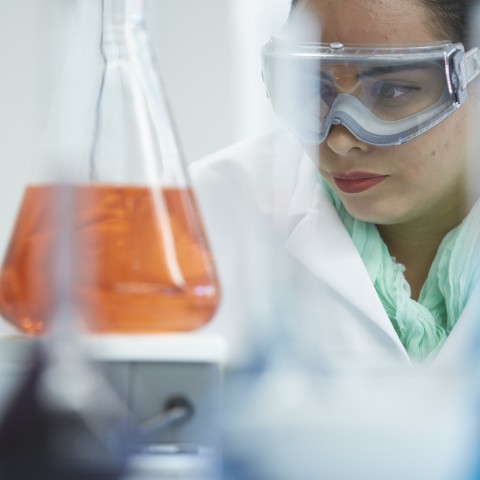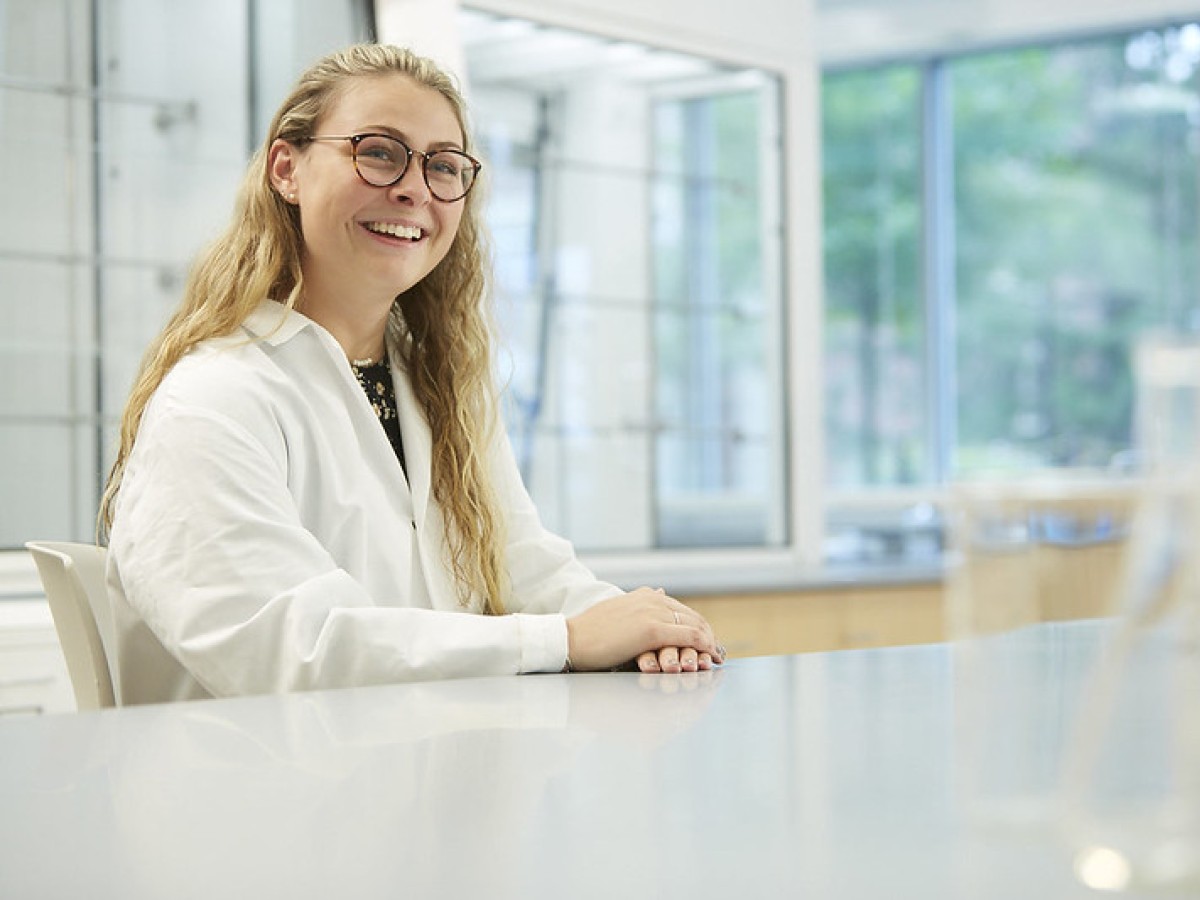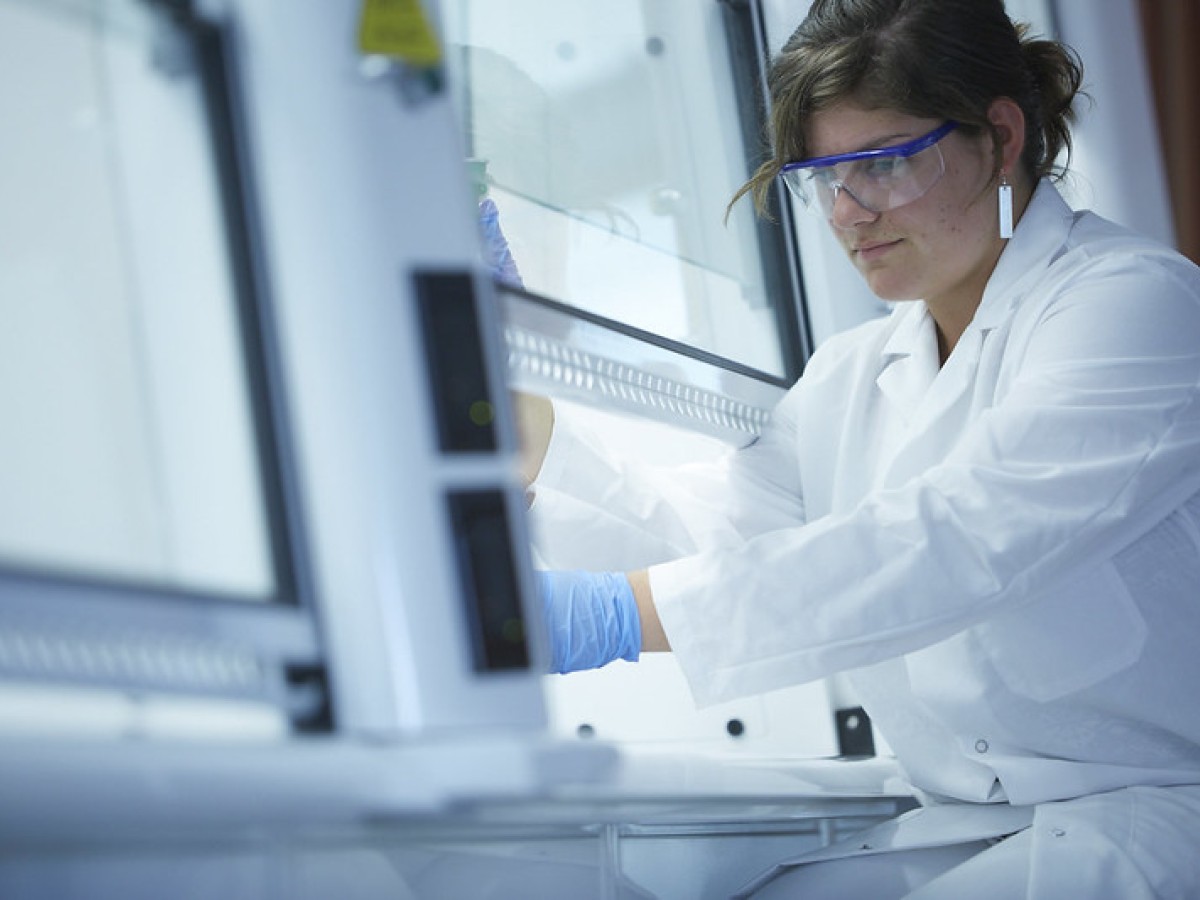
Learning Outcomes
-
Demonstrate an understanding of the key concepts of the traditional areas of chemistry.
-
Communicate complex technical information in written and/or oral format.
-
Interpret and draw conclusions from experimental data.
-
Demonstrate safe lab practices.
-
Retrieve chemical information from the chemical literature, books, and databases.
Chemists are leading the way in solving the world's energy and environmental problems to make an impact on the future health of our planet.
The following concentrations are available for the Chemistry program:
- American Chemical Society Approved Concentration (UCHA)
- General Chemistry Concentration (UCHG)
Career Opportunities
Chemistry majors will be prepared to pursue career opportunities across a wide range of exciting fields, including:

Chemical engineer
Evaluate methods of turning chemicals into marketable and usable products. Advanced degree needed.
Forensic Chemist
Work in law enforcement, analyzing evidence found at crime scenes.
Chemistry Teacher
Work in an academic institution and teach chemistry to students.
Chemical Technician
Work in a lab assisting with research and helping conduct experiments.
Toxicologist
Study the effect of chemicals on humans and animals.
Pharmacologist
Develop new drugs for pharmaceutical companies.
Meet Our Faculty

Priti Tiwari, Ph.D.

Ishara Mills-Henry, Ph.D.

Rachel Duffy, ’19, Chemistry
“It was refreshing to see that what I had been learning in my Organic Chemistry lectures and labs was exceptionally applicable to the work I was asked to do at my company.”

